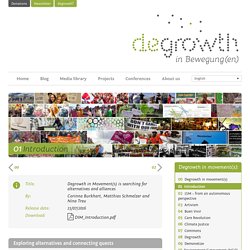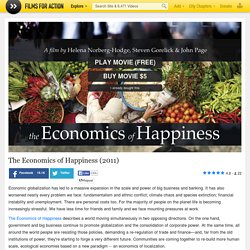

TurboTax Sucks Ass. Evonomics - The Next Evolution of Economics. From Bigger, Towards Better.
Finally, a breakthrough alternative to growth economics – the doughnut. So what are we going to do about it?

This is the only question worth asking. But the answers appear elusive. Faced with a multifaceted crisis – the capture of governments by billionaires and their lobbyists, extreme inequality, the rise of demagogues, above all the collapse of the living world – those to whom we look for leadership appear stunned, voiceless, clueless. Even if they had the courage to act, they have no idea what to do. The most they tend to offer is more economic growth: the fairy dust supposed to make all the bad stuff disappear.
You can see the effects in a leaked memo from the UK’s Foreign Office: “Trade and growth are now priorities for all posts … work like climate change and illegal wildlife trade will be scaled down.” We cannot hope to address our predicament without a new worldview. Raworth points out that economics in the 20th century “lost the desire to articulate its goals”. Introduction. What is degrowth actually about?

Degrowth is a perspective and an emerging social movement, which in the last few years brought together a multitude of projects and ongoing debates around alternative economies. The main idea of degrowth is an economy and society which aims for the well-being of all and for ecological sustainability. One key conviction is that social and ecological global justice can only be achieved when the destructive economic activities of the global North are reduced. Degrowth criticises the current framework of society, which always calls for “higher, faster, further”, as well as connected phenomena like acceleration, excessive demands, marginalization and the destruction of the global ecosystem. A fundamental change in the growth-oriented methods of production and ways of life as well as an extensive cultural change are thus considered necessary.
Basic Income Gathers Steam Across Europe. Barcelona.

In the last few months basic income—an unconditional cash payment to every member of the population—has been getting more and more attention in the media and social networks. Three items are especially interesting. First, Yanis Varoufakis, the able Greek economist, Minister for Finance in the first Syriza government and well known for his trenchant opposition to Troika austerity measures bashing the poor and already vulnerable majority of the population, has become such a media star that every time he gives an opinion on political economy, some theoretical aspect of economics or economic policy, his words are widely disseminated.
Hence, his remarks on basic income, which he described as “a necessity” at the Future of Work conference in Zurich on 5 May 2016, are of no small import. In a filmed talk lasting half an hour Varoufakis, incisive and original as always, reframed the debate. Art. 110a (new) Unconditional basic income The referendum will be a cliff-hanger.
Capitalism and present monetary system. P2P Banking. Time banking. Ecological Economics. Resource-based economy. The Economics of Happiness (2011) Economic globalization has led to a massive expansion in the scale and power of big business and banking.

It has also worsened nearly every problem we face: fundamentalism and ethnic conflict; climate chaos and species extinction; financial instability and unemployment. There are personal costs too. For the majority of people on the planet life is becoming increasingly stressful. We have less time for friends and family and we face mounting pressures at work. The Economics of Happiness describes a world moving simultaneously in two opposing directions.
We hear from a chorus of voices from six continents including Vandana Shiva, Bill McKibben, David Korten, Michael Shuman, Juliet Schor, Zac Goldsmith and Samdhong Rinpoche - the Prime Minister of Tibet's government in exile. Open Source Ecology. Ecosocialist Horizons – Ecosocialism or Barbarism. Slow Money: Investment strategies appropriate to the realities of the 21st century - Slow Money. The Moneyless Manifesto. Environmental Economics. Divesting From Fossil Fuels Means A Cleaner, Safer And More Resilient Future. Money, Gift and Society in the Age of Transition. Transiciones. Www.redge.org.pe/sites/default/files/Folleto Transiciones para salir del viejo desarrollo.pdf. REDGE. Natural Capital Project - Home. Ludwig von Mises Institute : The Austrian School Is Advancing Liberty.
Strike Debt. The Occupy Money Cooperative. The new economics foundation. The new economics foundation.